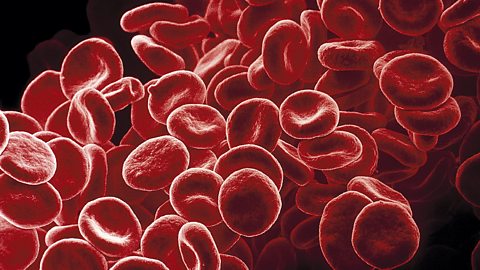Iron deficiency anaemia

Iron deficiency anaemia is a condition where the body lacks iron in its red blood cells.
This results in less oxygen being transported to cells and can cause symptoms such as tiredness and lack of energy, shortness of breath and pale skin.
What causes iron deficiency anaemia?
A number of different factors can lead to this condition.
Factors contributing to the development of anaemia in the diet
- Lack of iron in the diet – Certain groups of individuals, such as vegans, may lack iron in their diet due to not being able to consume haem iron from animal sources (e.g., liver and meat). Non-haem iron from green leafy vegetables is less readily absorbed by the body, so a vegan diet could lead to anaemia if not controlled carefully.
- Pregnancy – During pregnancy, a woman's body will be sharing its iron stores with the foetus as it needs to build up a supply of iron for its first six months of life. If the mother's diet is low in iron, she may develop anaemia.
- Menstruation – The amount of iron the body needs to consume in order to replace iron lost through heavy periods may not be met through the diet, resulting in anaemia.
- Growth spurts – During rapid periods of growth, such as infancy and childhood, it is important to ensure iron provided from the diet meets the daily recommended requirements. It is advised that children under the age of one do not drink cow's milk as this is low in iron.
- Medical conditions affecting absorption of iron – Poor absorption of iron may occur with some intestinal diseases such as Crohn's disease.
Dietary and lifestyle advice to manage anaemia
- Include iron rich foods in the diet – The best sources of iron come from haem sources (animal products). Eating a range of haem and non-haem sources should provide adequate iron for healthy red blood cells.
- Include foods rich in Vitamin C in the diet – Vitamin C aids the absorption of iron from non-haem sources. Eating foods rich in Vitamin C, such as oranges and peppers, will reduce the risk of developing anaemia, especially for vegans and vegetarians.
- Breast milk or formula enriched with iron – This is recommended for all infants under the age of one. Otherwise, there is a risk their iron levels will be low.
- Do not consume large amounts of tea or coffee – Phytates that are found in tea, coffee and plant components in vegetables can bind to iron and excrete it as waste before the body absorbs it. Anyone trying to increase their iron intake should therefore take care to limit their consumption of tea and coffee.